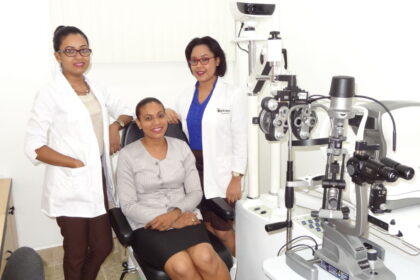A vision optometrist is a certified healthcare provider that can cure eye-related conditions. Unbeknownst to some, these professionals are licensed to perform surgery and recommend appropriate medication.
What Eye Conditions Can a Vision Optometrist Deal with?
A professional optometrist has the tools and the expertise to treat common eye conditions. These include:
-
Cataracts
Diabetes, genetics, and advancement in age can trigger cataracts in people with time. A vision optometry specialist can perform surgery to remove the clouded lens to fix the intraocular lens to improve the patient’s vision.
-
Macular Degeneration (M.D.)
Many sexagenarians begin to lose their eyesight with time, as age advancement can affect the macular in their retina.
Fortunately, a vision health doctor can recommend an eye injection to reduce the damage to the patient’s macula.
-
Glaucoma
A vision optometrist can do laser treatment or recommend medication to remedy this eye problem. For example, the specialist can recommend a beta-blocker to minimize eye fluid production to lessen unnecessary pressure on the eye vessels.
-
Myopia
Environmental and genetic factors can trigger nearsightedness, risking one’s safety. Therefore, the patient should visit an optometrist for surgery or laser treatment to cure this condition.
Shockingly, corneal therapy or contact lenses can remedy this problem if it hasn’t worsened.
-
Lazy Eye
Many children suffer from amblyopia due to muscle imbalance or eye misalignment. A good eye specialist can remedy this problem with appropriate eye drops, such as Atropine.
In extreme cases, this health professional must conduct surgery if they detect cataracts in the patient’s eyes.
3 Common Qualities of Many Popular Vision Optometrists
-
Superb Communication Skills
A good optometrist should explain the condition to the patient to reduce tension and reassure them of quick recovery.
Further, they should advise them on the progress of the recovery process and good eye care tips.
-
Punctuality
Professional eye doctors should be time-conscious to ensure they don’t waste their patient’s time. Many hospitals require patients to book an appointment for treatment services, as they deal with multiple clients.
-
Problem-Solving Skills
All optometrists require these skills to diagnose eye-related conditions and draft a professional treatment plan for their patients.
Closing Thoughts
A licensed vision optometrist examines the patient before recommending the best treatment. Therefore, misdiagnosis cases rarely arise if one visits a licensed eye hospital. Patients should not cheapen their condition, as a slight delay can worsen their eye problem quickly.




